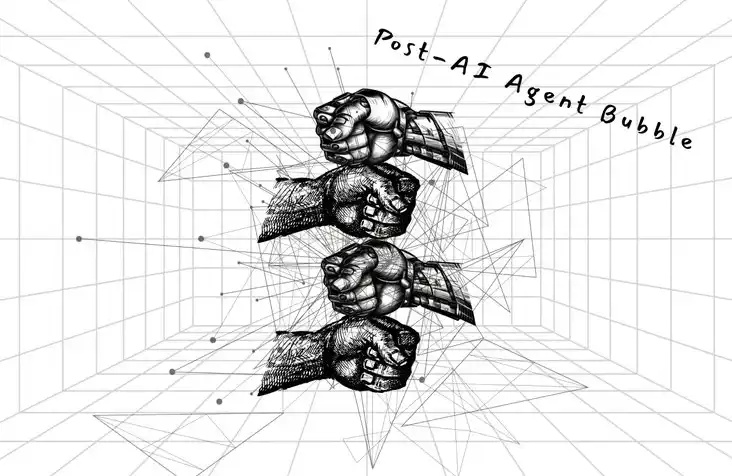a16z Leads Coinbase Follow-On: How Will Towns Refactor the Web3 Social Economy Model?
Original Title: "Decentralized Discord? Towns Receives Further Investment from a16z - Can It Break the On-Chain Social Curse?"
Original Author: 1912212.eth, Foresight News
On April 11, the Web3 social protocol Towns Protocol completed a $10 million Series B funding round, with a16z crypto leading the round. This round was led by a16z crypto, with Coinbase Ventures participating for the first time and Benchmark increasing their investment. Back in February 2023, Towns had already completed a $25.5 million Series A funding round, also led by a16z.
Amid the current crypto market downturn, where funding in even niche projects has nearly vanished and funding amounts in popular projects have significantly dropped, many funds are cautious and hesitant to invest. Why is a16z still betting on the underestimated social sector? What does Towns bring to the table?
Real-Time Messaging Application Open-Source Protocol
The Towns Protocol is an open-source protocol for building decentralized real-time messaging applications. It consists of an EVM-compatible L2 chain, decentralized off-chain stream nodes, deployed on Base. Towns allows users to create programmable communication use cases in a permissionless manner, known as Spaces. These Spaces are ownable, support on-chain subscriptions (membership), an extensible reputation system, and end-to-end message encryption.

The Towns Protocol ecosystem aims to empower individuals to securely and permissionlessly create, manage, and participate in digital communities. Its primary goal is to provide a robust, secure, and decentralized platform for people to have full control over their data, privacy, and interactions in these digital spaces, while safeguarding their reputation.
The Towns messaging protocol is the core infrastructure for validating and transmitting encrypted messages between users. It introduces an innovative approach to achieving secure, private group messaging. The protocol is designed to seamlessly operate within blockchain infrastructure, leveraging the resilience of decentralized technology to provide a high-quality permissionless messaging experience.
Read/write permissions are protected on Base, allowing Towns to make trade-offs in liveliness to send messages to thousands of participants at speeds similar to existing centralized social networks. The Towns protocol was initially built for a wide range of chat application scenarios, including the business logic of chat, but in the future, it will be abstracted to serve as the foundational layer for any form of encrypted message delivery use case.
What Are the Key Features?
The Towns ecosystem consists of three main components. First is the Towns Chain, a Layer 2 blockchain solution (built on OP-Stack) that serves as the foundation of the Towns Messaging Protocol, providing a consensus mechanism and security guarantees. The second is the Flow Nodes, which are responsible for managing message flow within the protocol, handling tasks such as message validation, storage, and encryption. The third component is the Permission Management, used to manage user permissions and access control within the space, ensuring the security and organization of the communication environment.
The interface style is similar to Discord, but Towns also has its own unique features. Its login interface supports Google and Twitter accounts and even includes interoperability with competitors like Farcaster, eliminating the need for a native wallet.

An Application Chain Designed for Social Networks
The Towns Protocol is an application chain designed specifically for social networks, protecting read/write permissions separately at the Base layer. The application chain can strike a balance in terms of liveliness and can rapidly send messages to thousands of participants, similar to existing centralized social networks.
Owneable Communication Spaces
Space creators truly own the spaces they create, which exist as on-chain assets.
Programmable Spaces
Spaces are deployed on-chain with a programmable interface, allowing for custom rules such as who can read/write and enabling integration with any other EVM-compatible external contracts.
On-Chain Membership with Built-In Protocol Fees
Users need to hold a valid membership token to send and receive messages in the space. Membership pricing includes protocol fees to cover network operation costs.
On-Chain Social Graph
Membership tokens and spaces can be discovered on-chain, forming a transparent social network structure.
Scalable Reputation System
Towns' communication spaces are programmable, allowing members to maintain reputation scores for specific spaces on a peer-to-peer basis, which can be discovered on-chain.
End-to-End Encrypted Messaging
Ensures secure, private communication through advanced encryption technology, protecting the security of messages between the sender and authorized users.
Tokenomics
As per its official documentation, the Towns token is deployed on the Ethereum mainnet with an initial token supply of 10 billion tokens. The Towns token serves various purposes within the Towns protocol ecosystem, including delegation to node operators, space address delegation, and participation in governance.
The Towns token can be delegated to node operators, who are a critical part of network operation. To receive DAO approval and commence operations, node operators must acquire a minimum token delegation to ensure they have sufficient stake in the network's success and security. Token delegation can be directed to a node operator's address or to any valid space address within the network. Subsequently, the space can redirect received delegated tokens to specific node operators, providing flexibility in delegation strategies. Apart from its role in delegation and network operation, the Towns token also plays a crucial role in Towns DAO governance. Token holders can participate in the decision-making process, influencing the direction and policies of the DAO.
Regarding the inflation mechanism, the Towns token has an initial annual inflation rate of 8%, which linearly decreases over 20 years to reach a final inflation rate of 2%. Inflation rewards are evenly distributed to all active node operators at the end of each period, occurring biweekly. Therefore, the biweekly allocation of inflation rewards is calculated using the following formula: (annual inflation rate / 26).
Concerning reward distribution fees, each node operator has the autonomy to set a percentage fee for their services. This fee is deducted from the total inflation reward allocated to the node operator per period. After deducting the node operator's fee, the remaining inflation reward is proportionally distributed to the node operator's delegators. Subsequently, Towns will also introduce its staking feature.
Currently, Towns has not disclosed any information regarding airdrops.
Summary
The CEO of Towns Protocol is Ben Rubin. He is an experienced entrepreneur and was the co-founder and CEO of the popular video social networking app Houseparty and the live-streaming app Meerkat.

(Rubin as the middleman)
Rubin is known for his achievements in building innovative online communities and real-time communication tools, with his career focusing on enhancing user connections and interactions through technology.
According to his official introduction, Towns currently has nearly 1 million members, and consumer spending through spatial conversations has exceeded $500,000. Its protocol revenue has also been growing steadily this year.

The Web3 social track has witnessed numerous protocols' short-lived glory moments—they shone brightly with disruptive promises but quickly faded due to technological bottlenecks, user churn, or ecosystem closure. In the midst of a sluggish crypto market, how to attract more users to create and join group chats, how to retain users, remains a harsh reality that every social protocol must face.
Welcome to join the official BlockBeats community:
Telegram Subscription Group: https://t.me/theblockbeats
Telegram Discussion Group: https://t.me/BlockBeats_App
Official Twitter Account: https://twitter.com/BlockBeatsAsia
 Forum
Forum OPRR
OPRR Finance
Finance
 Specials
Specials
 On-chain Eco
On-chain Eco
 Entry
Entry
 Podcasts
Podcasts
 Data
Data


 Summarized by AI
Summarized by AI







